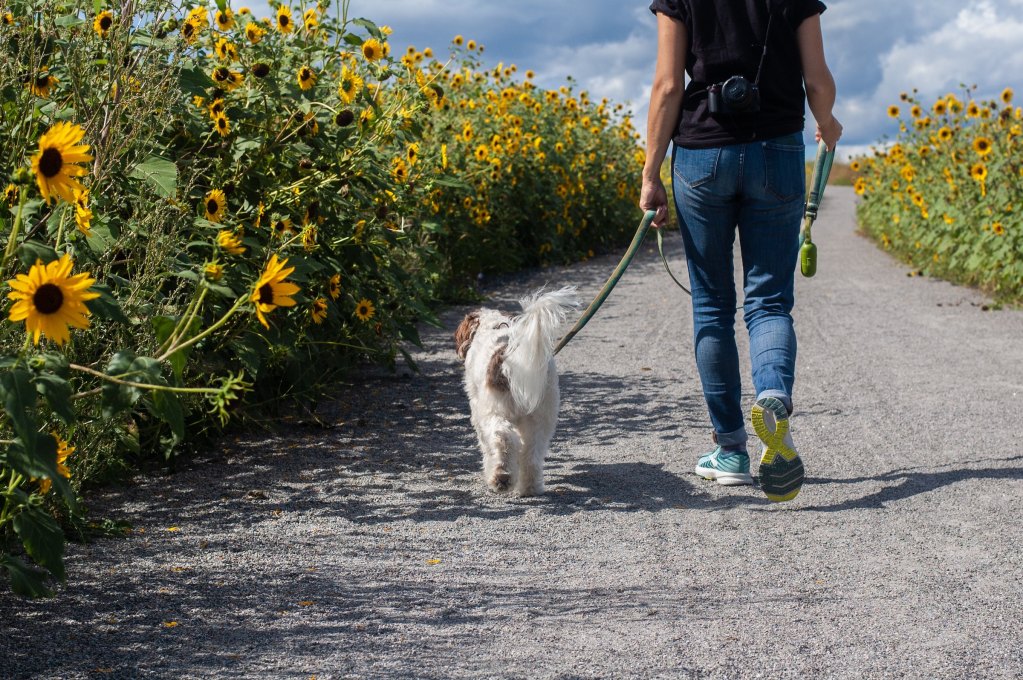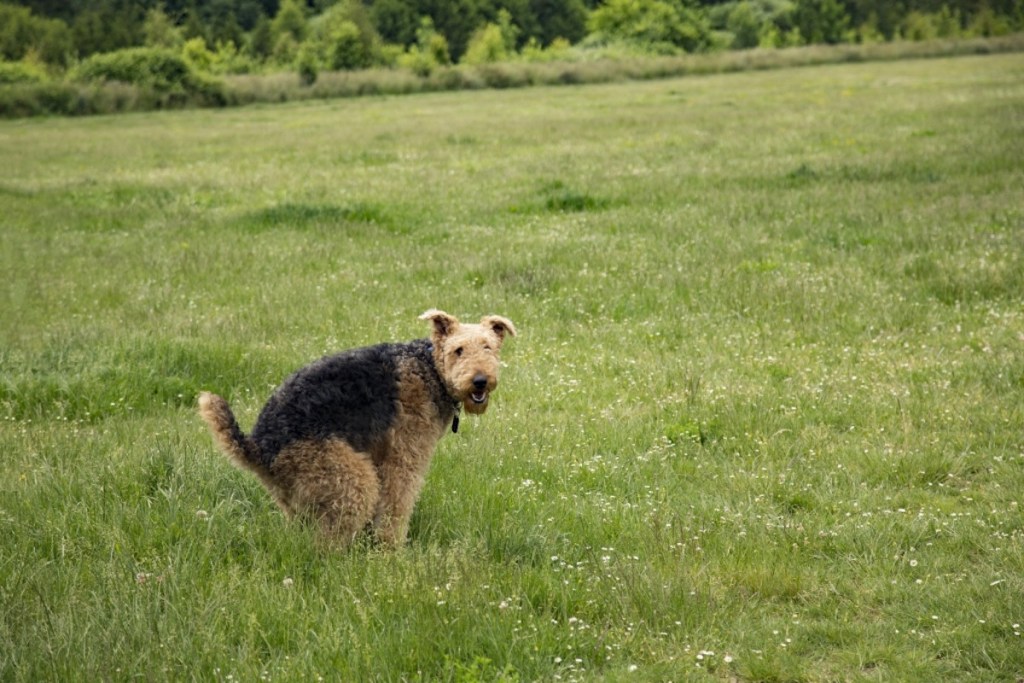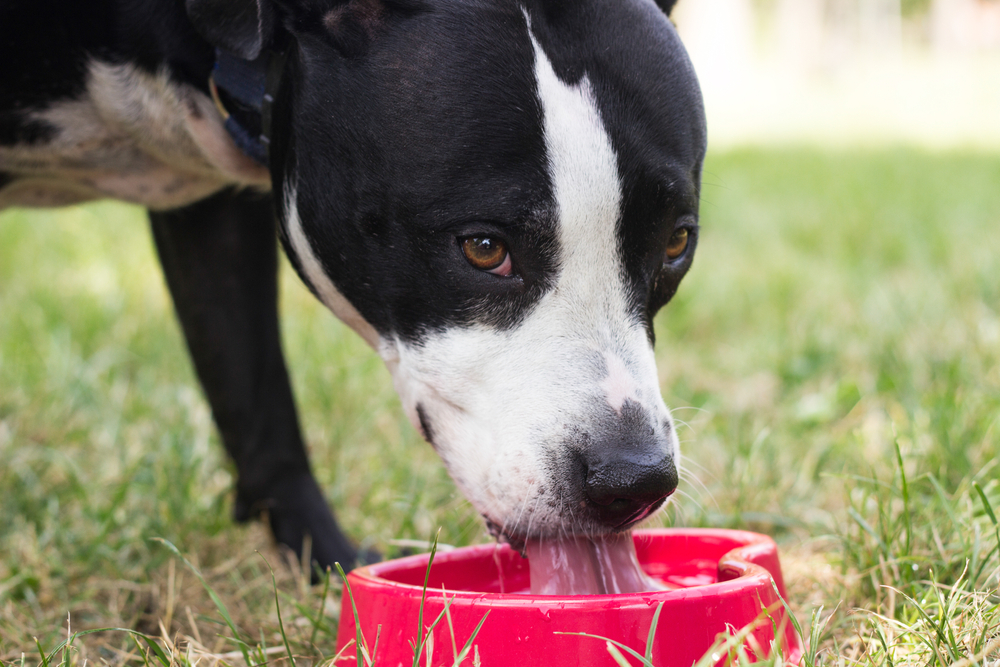
Ah, the glamours of pet parenthood. Poop bags and potty training — it all becomes a normal part of life, but what happens when your fur baby is battling a bout of constipation? More often than not, it resolves itself after a few days, but if it persists, you may want to step in to help your four-legged friend get things moving again.
It may be TMI, but it’s sometimes necessary. There are plenty of foods that will have the desired effect, or you can opt for a gentle supplement, medication, or even lifestyle changes.
Here’s how to make a dog poop quickly — you know, under desperate circumstances. Good luck, and don’t forget the air freshener.

These are the ways to make a dog poop quickly — safely and from home
While some remedies are safe to try from home, others should be done only by a veterinary professional — don’t worry, we’ll specify which is which.
Powdered fiber supplements
One over-the-counter solution for canine constipation is a fiber supplement, just like Native Pet’s Organic Pumpkin Fiber Powder. Pumpkin, the main ingredient in this supplement, has a unique combination of fiber and moisture that can relieve both constipation and diarrhea. This is certainly a useful investment if you have a pup with tummy troubles.
If you’re up for a visit to the vet, they can also recommend supplements and medications to make bowel movements more regular — even prescription-strength ones!
Enema
The American Kennel Club (AKC) notes that this is a constipation-relief method you should never attempt from home. Canine enemas should always be done under the care of a licensed veterinary professional, as they are quite invasive and sometimes uncomfortable. Even so, they are effective and safe when performed correctly, and may be the most effective option in more severe cases of constipation.

What home remedies can I give my dog for constipation if they don’t need to see the vet?
There are a few things you can do right from home if your dog seems mildly stopped up — no vet appointment required. Here are some to try:
Canned dog food
Surprisingly, the extra moisture in canned dog food can help some pooches re-regulate over time. This probably won’t work overnight, but it can be a convenient and delicious strategy for getting rid of chronic constipation.
Hydration
As mentioned above, moisture and water (whether in food or on its own) are great for the digestive system. Encourage your dog to drink more water if you can, but you can always add a bit of chicken broth to it to entice them. The AKC lists electrolyte supplements as another helpful tool for maintaining hydration. Many pet pharmacies and stores carry supplements so your pup won’t have to wait to feel better. Your vet may be able to recommend a brand over the phone.
Lifestyle changes
Whether constipation was a one-time issue or a recurring problem, ensuring that your furry friend has a regular exercise routine will help prevent this from happening again. Even a daily walk and some playtime will keep everything moving smoothly, if you know what we mean.

What foods make dogs poop quickly when they’re constipated?
Since a lack of fiber is a common reason for constipation in canines, foods that contain fiber can help your dog achieve and maintain regular bowel movements.
Prescription dog food
For chronic constipation, your veterinarian may recommend switching your pup to a high-fiber prescription dog food. Always consult your vet before making a choice like this to make sure that you’re switching to the right food for your dog’s needs.
Pumpkin for dogs
Believe it or not, pumpkin has some magical gastrointestinal properties. The gourd itself is high in fiber, but canned pumpkin for dogs contains high amounts of water, too. It can help pups with both diarrhea and constipation — and it’s delicious!
Herbal constipation relief for dogs
If medication isn’t up your alley, there are a few oils, seeds, and herbs that may do the trick. The AKC lists powdered psyllium seeds, fig paste, wheat bran, and olive oil as a few ingredients that can have laxative properties.
Just because a certain ingredient helps people regulate themselves, though, doesn’t mean it will do the same for do — at least safely. Always check with your veterinarian before adding any new human food to your pooch’s diet, especially if dealing with constipation.
Whatever you decide to try out first, don’t feel discouraged if your dog isn’t all better right away. Even the most effective techniques can take some time. Don’t forget, your vet is always there if you need a hand — no worries.

How long can a dog go without pooping?
An otherwise healthy pup without underlying health conditions can go up to 48 hours without pooping. Otherwise, it’s likely a sign of constipation. How regular a dog is varies based on lifestyle and diet. Puppies and dogs with higher metabolisms often poop more than older pets or ones with lower metabolic rates. The size of your animal may also affect frequency and stool appearance.
The key is to figure out your dog’s version of “normal” when it comes to potty habits. Deviations from the norm are bound to happen from time to time, but keep an eye on your pup in these situations. If your dog seems to be in pain or passes a bloody stool, call the vet.
Editors' Recommendations
- Are ‘dog years’ really 7 human years? How to calculate your dog’s age
- Why does my dog have a bald patch on their tail? Here are the answers you need
- Looking for signs your dog has ticks? These telltale symptoms mean you have a flea or tick problem
- Xylitol is dangerous for dogs: 10 surprising products that contain it as a hidden ingredient
- Is your dog barking nonstop? Here’s how to get your noisy pup under control




